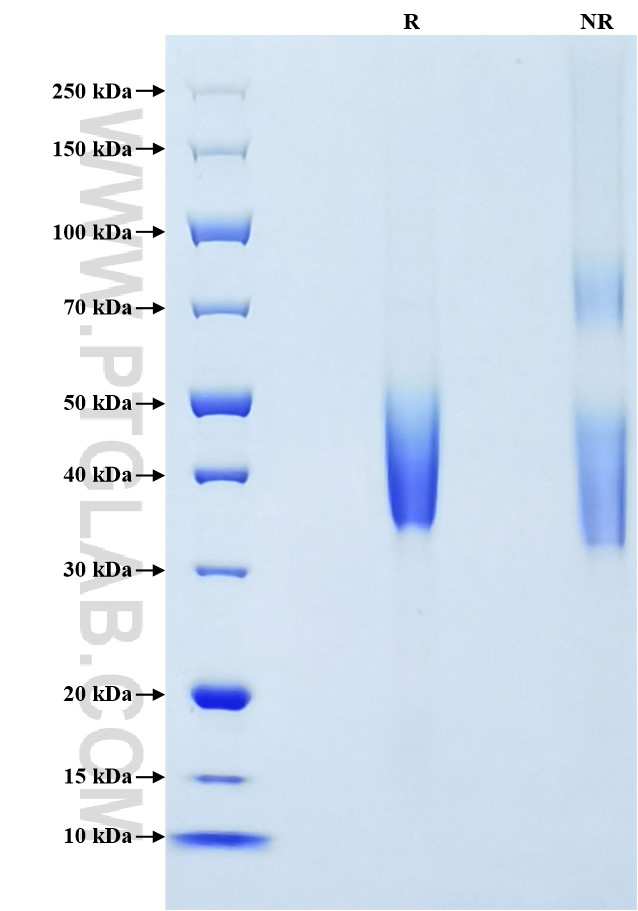Recombinant Human B7-H3 protein (Myc Tag, His Tag)
ED50
/
Species
Human
Purity
>95 %, SDS-PAGE
GeneID
80381
Accession
Q5ZPR3-2
验证数据展示
Technical Specifications
| Purity | >95 %, SDS-PAGE |
| Endotoxin Level | <1.0 EU/μg protein, LAL method |
| Biological Activity |
Not tested |
| Source | HEK293-derived Human B7-H3 protein Leu29-Pro245 (Accession# Q5ZPR3-2) with a Myc tag and His tag at the C-terminus. |
| Predicted Molecular Mass | 28.3 kDa |
| SDS-PAGE | 34-50 kDa, reducing (R) conditions |
| Formulation | Lyophilized from sterile PBS, pH 7.4. Normally 5% trehalose and 5% mannitol are added as protectants before lyophilization. |
| Reconstitution | Briefly centrifuge the tube before opening. Reconstitute at 0.1-0.5 mg/mL in sterile water. |
| Storage |
It is recommended that the protein be aliquoted for optimal storage. Avoid repeated freeze-thaw cycles.
|
| Shipping | The product is shipped at ambient temperature. Upon receipt, store it immediately at the recommended temperature. |
Background
B7-H3 (CD276) is a type I transmembrane protein that belongs to the B7 immunoregulatory family. B7-H3 participates in the regulation of T-cell-mediated immune response probably by functioning as both a T cell costimulator and coinhibitor. B7-H3 plays an essential role in cell proliferation, invasion, and migration in malignancies. Overexpressed in different types of human cancers, B7-H3 has been implicated in cancer progression and metastasis and becomes an attractive target for cancer immunotherapy.
References:
1.Yan R, et al. (2015). Inflammation. 38(3):1322-1328. 2.Zhang G, et al. (2010). J Immunol. 185(6):3677-3684. 3.Liu S, et al. (2021). Front Oncol. 11:654684. 4.Picarda E, et al. (2016). Clin Cancer Res. 22(14):3425-3431.
